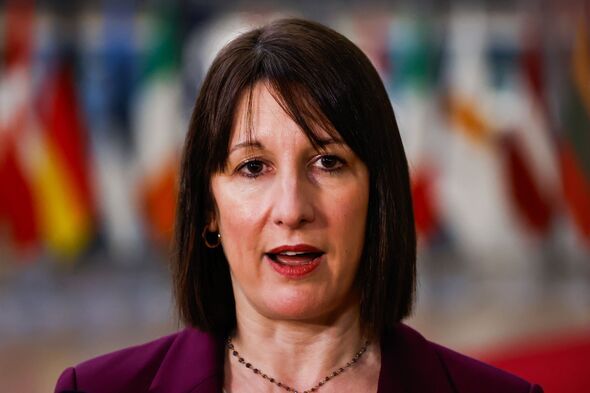

The Chancellor has discouraged the Supreme Court from ruling harshly against major banks in a that could see motorists paid £30bn in compensation costs.
The court is set to hear a case against Lloyds, Santander, Barclays and Close Brothers in April, alleging that the companies had unlawfully gained commission from lenders without their fully-informed consent.
Ruling in favour of the motorists could force the firms to pay out £30 billion in combined compensation - but has asked the court to side with the motor giants in a move that puts her firmly at odds with UK motorists.
An application submitted by the Treasury this week argues that the case would "adversely affect the UK's reputation as a place to do business, with a consequent impact upon economic growth", as first reported in the .
The crux of Ms Reeves' argument is that forcing the banks to pay their dues could damage their UK operations and increase the costs of car finance loans.
The application also warned that the payout could "generate a perception that regulation in the UK is uncertain".

The chancellor also appeared to question the high figure of £30bn, cautioning that "any remedy should be proportionate to the loss actually suffered by the consumer and avoid conferring a windfall".
The Supreme Court ruling decision will follow a previous ruling by the Court of Appeal in the motorists' favour.
The judgement concluded that customers should have been transparently told the commission dealers would earn on their loans and be able to approve or disapprove it.
Alongside the Treasury, the Financial Conduct Authority (FCA) is also seeking to intervene in the landmark case, which industry heavyweights fear could result in a payout comparable to the £50bn in compensation owed over payment protection insurance (PPI) mis-selling.
Gary Greenwood, analyst at the Shore Capital investment group, said he "wasn't surprised" Ms Reeves had stepped in to press the court on the ruling, suggesting the government is "keen that [the compensation bill] doesn't spiral out of control".
He added that while the government sets the legislation and has the power to overrule the court, doing so could make for bad PR.
"The government is leaning on the Supreme Court to say 'apply common sense here'," Mr Greenwood told The Telegraph.
He added: "[It] has the power to ultimately overrule [the court], but it does risk setting a nasty precedent, that if the government doesn't like the look of something it will intervene."
However, Elizabeth Comley, chief operating officer of the law firm Slater and Gordon, said that the "tens of thousands" of people impacted by the mis-selling case wouldn't be impressed by the government's prioritisation of industry over individuals.
"While we recognise the importance of maintaining confidence in British lenders, this cannot come at the expense of justice for the individuals affected," Ms Comley told the PA News Agency.
"Consumers deserve accountability and redress when they have been wronged, and Rachel Reeves' attempts to shield lenders from the consequences of their own actions risk undermining public trust in the financial sector as a whole."